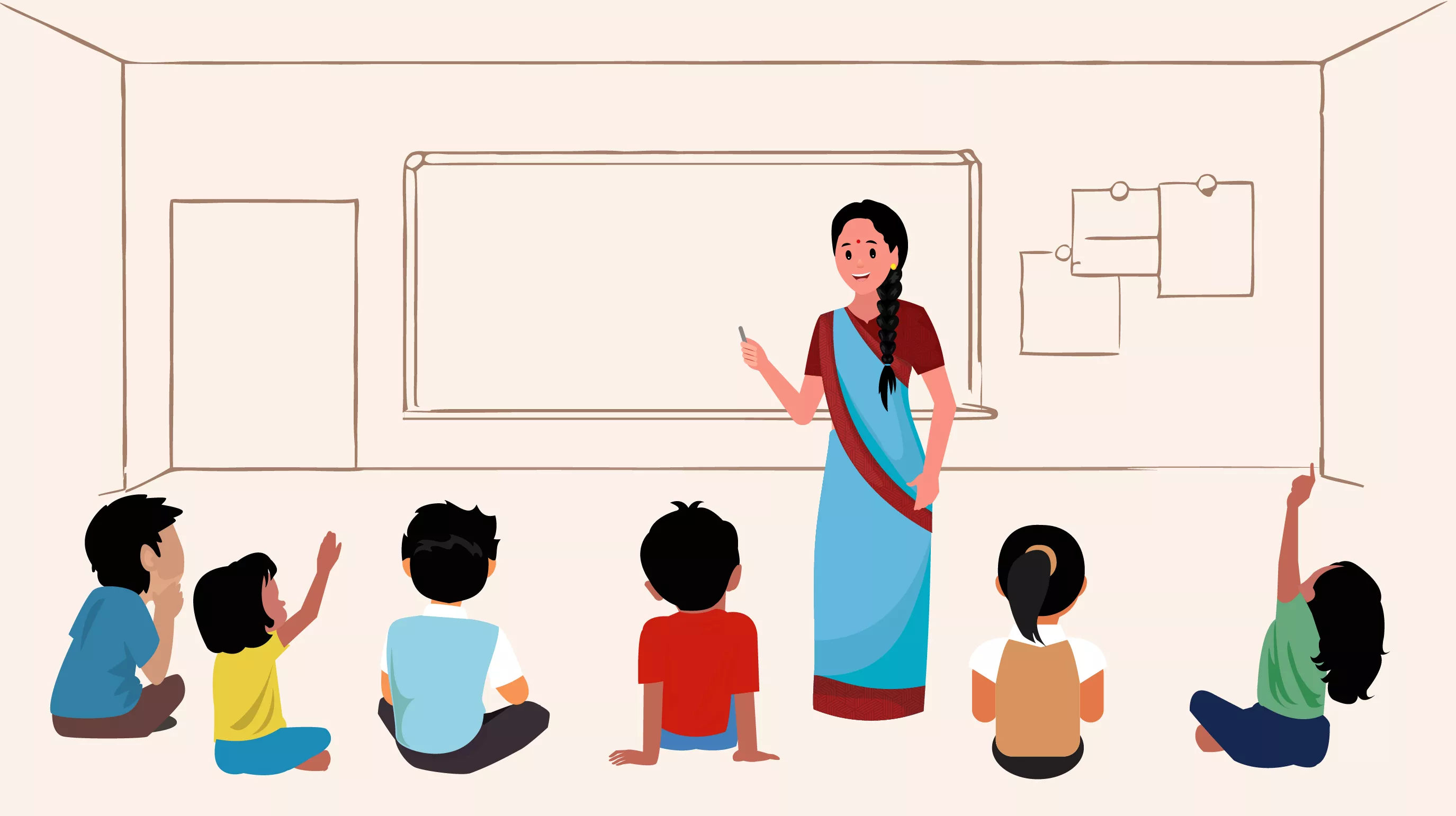Between Data and Dignity: Field Notes from Raichur’s Anganwadis

On the Road to Raichur’s Anganwadis
I set out early, bouncing along a dusty red earth road in Raichur district. The March sun bore down as our jeep veered off the highway into villages that grow cotton and Byadagi red chilly. I was on a supportive supervision mission, a term that sounds bureaucratic but at its heart means listening, observing, and supporting Anganwadi centres to improve the quality of data and care. Nothing in my comfortable office space in Bengaluru had prepared me for what I would experience on the ground. Over a series of visits, I came face-to-face with the lives behind the data. These are my notes from the field, where statistics dissolve into stories.
Meeting the Unsung Frontline Worker
At a centre tucked behind a government school, I met Shanta (name changed), an Anganwadi worker. Her room was dim, the paint peeling and yet, a handful of children played inside. Shanta, with tired eyes and a vibrant, faded saree, welcomed us warmly. As we spoke, she laid out 13 registers. "I maintain more than a dozen," she said. Birthdates, immunisation records, growth charts, attendance logs, the paperwork seemed never-ending.
Despite the rollout of the Poshan Tracker app as encouraged by MoWCD, workers in Karnataka continue to manage both digital and physical records. Shanta’s day began at dawn: cleaning, preparing food, teaching, monitoring growth. "We do surveys, home visits, everything," she said. Her tone was calm, her fatigue evident.
She showed me certificates and awards, now yellowed. Then, in a hushed voice, she revealed, "Sometimes, to avoid scolding, I just fill in the numbers. There is often pressure to have 90%+ growth monitoring done in the first week of the month” " Her candour was startling. This was no isolated lapse. It was a systemic problem, a culture where misaligned incentives often caused distortions in data.
"What keeps you going?" I asked. She gestured outside. "The children, the mothers. They depend on us. If we can help even one mother and child stay healthy, our effort has meaning"
In these Anganwadi Centres, I observed a significant presence from migrant families, a highly vulnerable group often overlooked. For these “invisible children”, the nutrition, health services, and especially pre-school education offered here is not just helpful but transformative. These early interventions are crucial to giving them a fair start and breaking cycles of marginalisation.
The Supervisor’s Dilemma
On my third day, I met Vasudha (name changed), a Lady Supervisor with 15 years of experience. She is mandated to monitor only 20-25 centres but she manages nearly 70 across 3 sectors due to staff shortages. Typically, 1 sector can span up to 30 kms which means Vasudha has to cover an area of 90 kms within the same resource constraints. "I try," she sighed, "but some centres I haven't visited in months." In her project, only 4 out of 20 supervisor positions were filled, giving each an additional burden of 2-3 sectors.
At the next Anganwadi, she gently questioned Rekha, the AWW, about missing entries. Rekha explained her weighing scale had broken months ago and hadn’t been replaced. She had been sick but still led a pulse polio drive. Vasudha nodded, understanding. "Scolding her won’t help. I see myself in them," she later said. She recalled a senior official once telling her, “Correct data is a high-risk, low reward activity”.
At another centre, toddlers cried as we weighed them. The register showed zero malnourished kids. But after re-measuring, we identified four. The AWW was shaken. "I didn’t know.," she whispered. Vasudha didn’t scold her. She explained, demonstrated. That moment captured the spirit of supportive supervision: collaboration, not fault-finding.
When Targets Undermine Trust
One evening, over tea and Parle-G biscuits, five Anganwadi workers shared stories. " We need more support ," one said. Another added, "Sometimes truth gets lost in the reporting ".
Shanta spoke again: "We slog all day and often have to spend from our pocket” Another added, "Our phones stop working at times, making it even more difficult. " Vasudha, now with us, said: "Everyone has pressure, even our seniors. But somewhere, we’ve lost the point. This was supposed to be about supporting mothers and children. Now it’s a numbers game."
Bridging the Gap: Empathy as Governance
On my last day, I attended a debrief with the CDPO. We flagged gaps: broken scales, outdated registers, undertrained staff. He understood the situation but the weight of the system was evident on him too.
Outside, Vasudha packed up. Shanta and others left on a crowded bus, still smiling, joking. Despite the exhaustion, their resilience glowed; but to sustain and fuel that strength, they need stronger, more responsive systems.
This journey changed me. It reminded me that behind every figure is a face, a story. How can we ensure interventions of Supportive Supervision are sensitive to the realities of the people at the frontlines of service delivery? When motivation is intrinsic, how do we make monitoring measures foster trust and respect instead of fear and criticism? As partners for effective governance, how can we embed empathy in the rubric of policy design?
Underneath systems of governance are people that are tirelessly working, often under severe constraints, to ensure essential services reach every citizen. The system may not be perfect, but the people propelling it forward inspire hope. Supervision isn’t about fault-finding. It’s a mindset of care. Supportive supervision works when we listen first. So let us start there. Let us listen.
